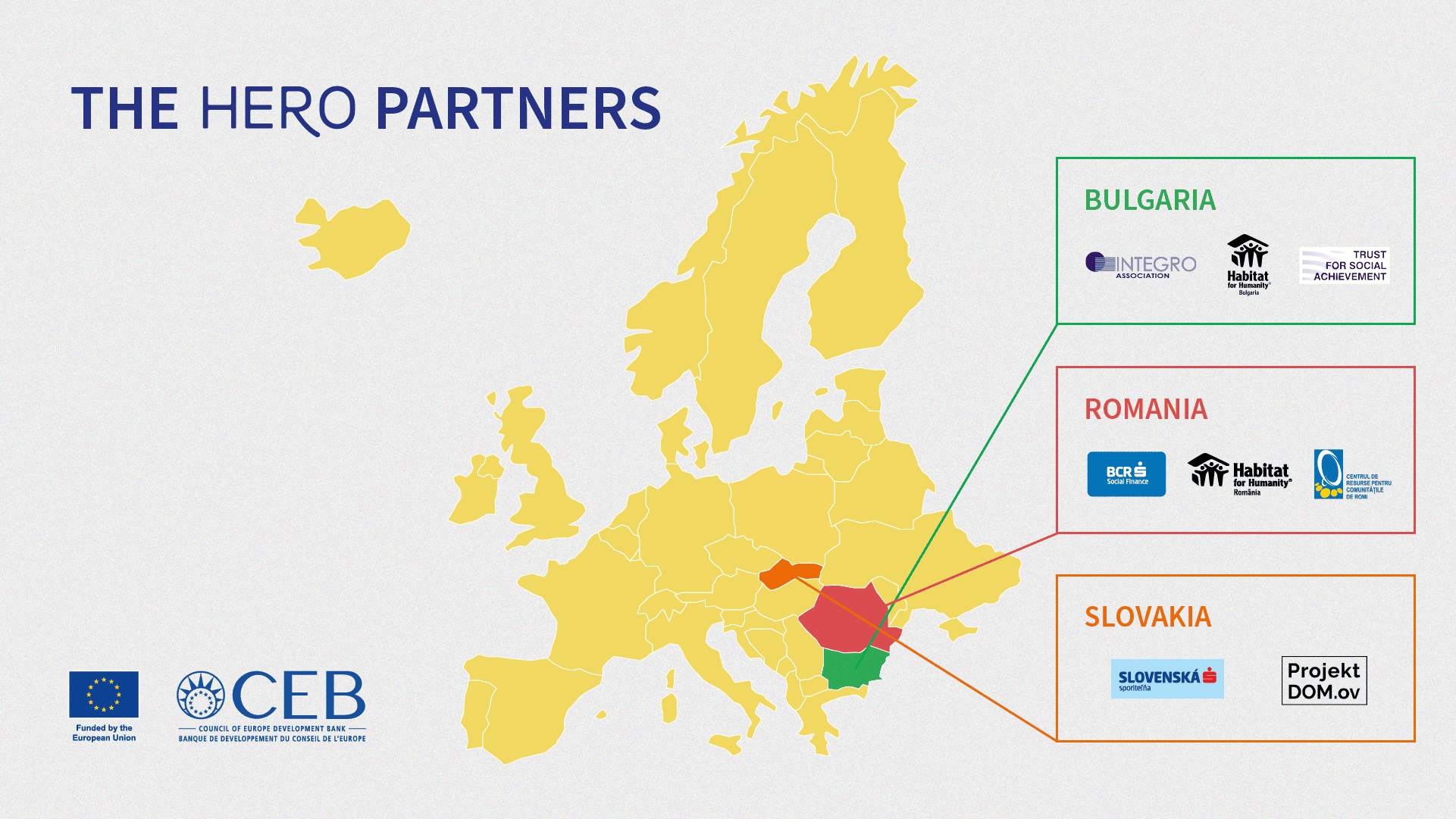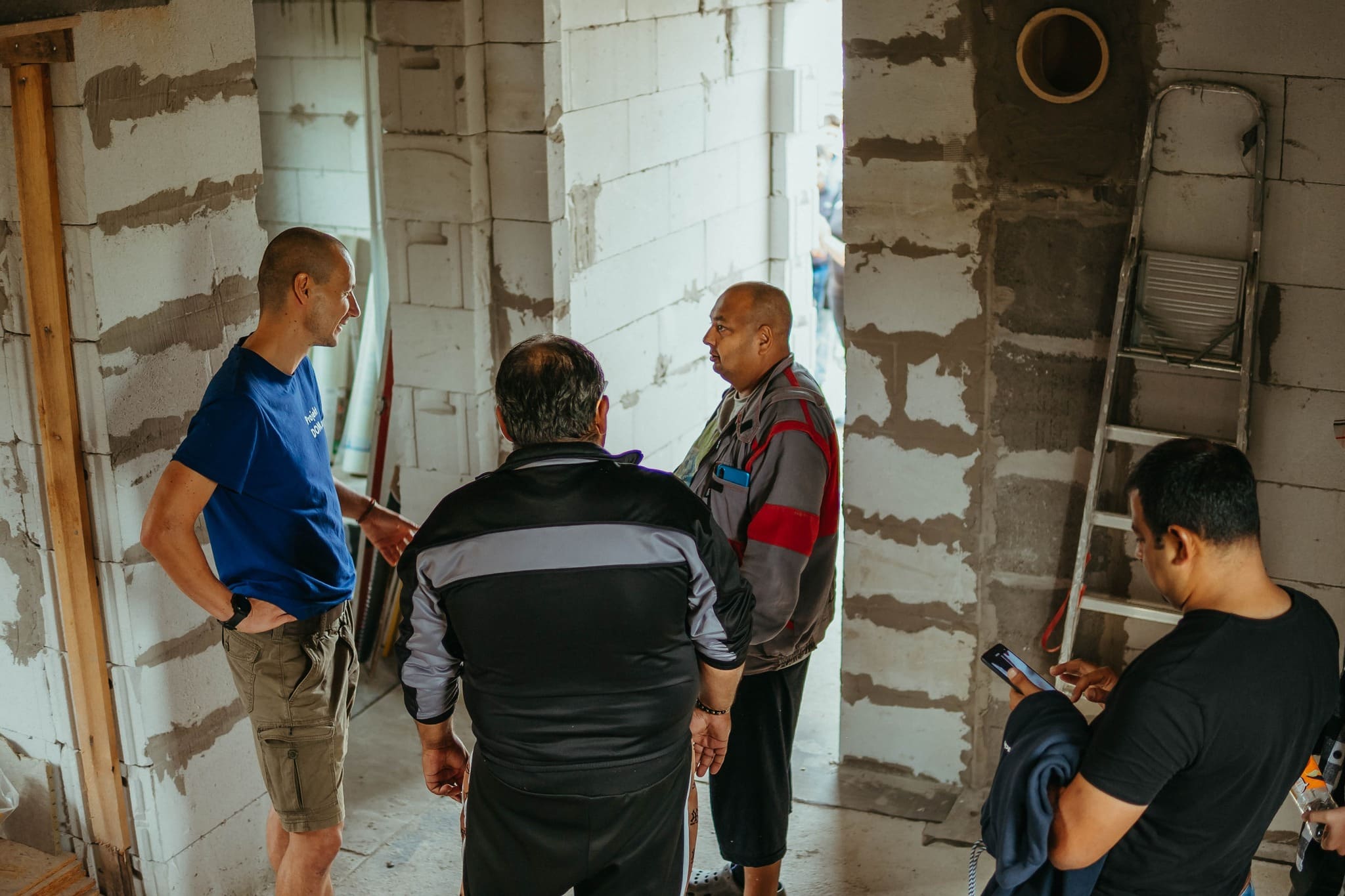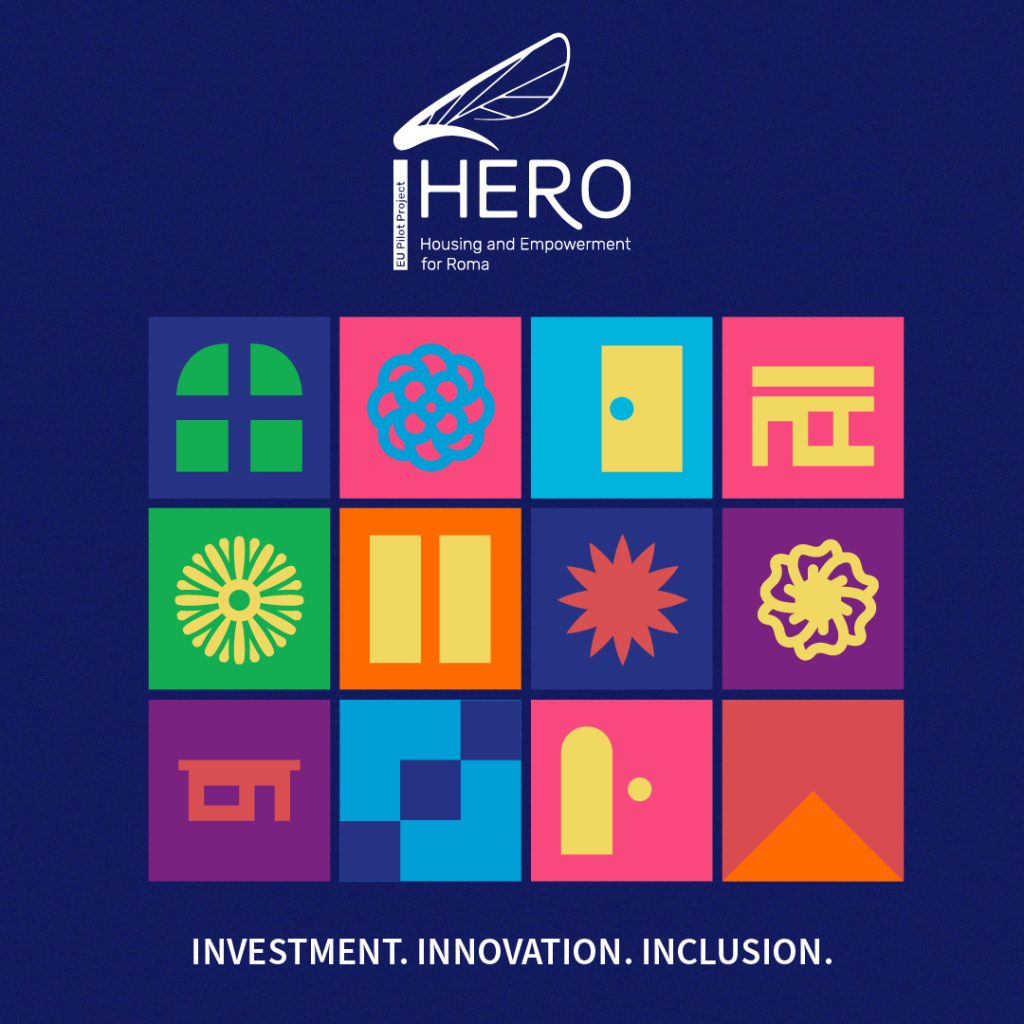Overcoming complex challenges requires a joint effort. European Roma inclusion programs are no different — public, private, and civil society sectors have to work together towards accessible and efficient solutions. The Housing and Empowerment for Roma (HERO) project is designed precisely to meet this goal.
Funded by the European Parliament, overseen by the European Commission, and implemented by the Council of Europe Development Bank (CEB), HERO pioneers an innovative social investment model in Romania, Slovakia, and Bulgaria.
In short, HERO aims to break the barriers and empower Roma communities.
Prioritising inclusion at the EU level
The Council of Europe estimates that approximately 1.85 million Roma live in Romania (8.3% of the population) and Slovakia has a Roma community of around 500,000 (9% of the population). In Bulgaria, over 260,000 citizens self-identify as Roma, also making them the third largest ethnic group in the country.
At the same time, the National Roma strategic framework for Romania reports that one in three Roma lives in unregulated settlements without running water and/or no access to electricity.
To champion inclusion across Europe and align with the commitments of the EU anti-racism action plan, HERO pilots an innovative initiative in countries where the need is most profound. By funding housing projects in these three countries with the largest Roma populations in the EU the project ensures a wide-reaching impact at the local, national, and European level.

The power of social innovation
Contrary to prevailing stereotypes, around 80% of the Roma population in Europe, is settled and shares the universal aspiration of improving their lives by building a proper home. However, they encounter additional hurdles, particularly discrimination which limits their access to basic services, such as healthcare, housing, and education. HERO’s social innovation model aims to bridge these gaps:
- Innovative Models with Inclusion Experts: By developing social innovation models in collaboration with inclusion experts from UpSocial, HERO seeks to strategically address the unique challenges faced by the Roma community.
- Tailored Local Solutions: HERO is forging partnerships with local financial institutions, public authorities, and community organisations. Such close collaborations break down local obstacles to Roma inclusion.
- Testing and Scaling Up: By constantly testing HERO’s social innovation model in real-world scenarios, the project ensures a dynamic exchange of knowledge. This proactive approach is key to improving the model for future scalability.
A collaborative effort that spans sectors and brings together public, private, and civil society organisations is what stands as a testament to HERO’s social innovation spirit, specifically designed to tackle the root causes of poverty and elevate housing conditions for Roma families in Europe.

Community investment at large
Investing in housing isn’t simply about providing shelter, but rather about fortifying the very foundations of a community. For Roma families, a staggering 80% of whom are currently at risk of poverty, eradicating poverty goes beyond bricks and mortar. As a response, HERO engages all relevant stakeholders to invest in physical, organisational, and social infrastructure.
HERO implementing partners in Romania, such as the Resource Center for Roma Communities and local Habitat for Humanity chapters, provide financial literacy training and access to the tools needed to navigate the financial landscape. In this manner, a modest microloan transforms into a catalyst for economic empowerment.
At the same time, HERO is committed to supporting local municipalities in their pursuit of integrated development. Frequent meetings and facilitated discussions strengthen the link between the Roma community and local authorities, creating a conducive environment for the entire community to thrive.
Transforming lives. Creating HEROs.
Today, HERO’s social investment model already seamlessly integrates micro-loans and capacity-building initiatives enabling marginalised Roma families to access affordable housing and employment opportunities in Romania, Slovakia, and Bulgaria.
Whether it is assistance to complete a savings scheme, financial literacy training, or building up skills necessary for self-construction or renovation of housing — all of these initiatives empower people to take charge of their lives and become the architects of positive change.
Follow the HERO journey on social media and check the next blogs to learn more about the project and the promise it holds for a more inclusive future.
